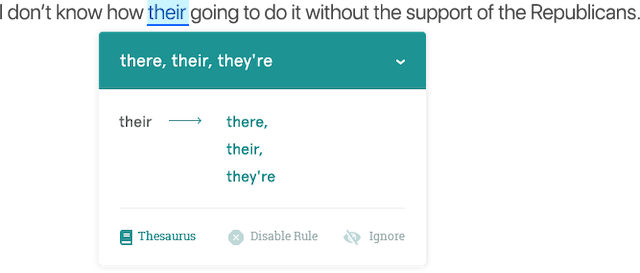
Academic essays are an unavoidable part of the educational journey. Learning to write well may be one of the greatest skills you gain during your college years. Most students, however, will commit many errors before learning the art of academic essay writing.
While you can't avoid writing essays, you can avoid making some of these common mistakes:
Writing a Synopsis, Not An Analytical Essay
The point of an essay is to create an argument and defend a thesis. If you're writing about a work of literature, some background to clarify the topic can be helpful. But the majority of your essay should involve your analysis based on credible research. Don't simply restate what happened in the book.
Not Having a Strong Thesis Statement
Coming up with a strong thesis statement is essential to writing a good essay. The thesis statement is the hook on which the rest of your essay hangs. It should state an opinion and be as specific as possible. Example weak thesis statement: The Great Gatsby is a great example of American Literature. Example strong thesis statement: The Great Gatsby captures the essence of America's Jazz Age in its decadence, materialism and ultimately, its tragic emptiness.
Using Too Many Quotes in An Essay
The essay is supposed to reflect your understanding of the topic and the research you've done to back up your argument. Overuse of quotes either from the work you're analyzing or from the research you've done undermines your authority on the topic. Quotes should be used sparingly and only when they drive home a point with an eloquence you can't match with your own words.
Plagiarism
Defined as “the practice of taking someone else's work or ideas and passing them off as one's own,” plagiarism is a serious offense. Colleges and universities have strict policies against plagiarism and use various tools to check your work for plagiarised content. You won't get away with it, and sometimes it can even get you suspended. Professors can recognize if something sounds like a student wrote it or if it came from another source, so don't try to fool them.
There are two kinds of plagiarism:
- The first kind is directly taking the words from a source and using them in your paper without quoting or giving credit.
- The second kind is trickier and you should take special care to make sure you're not committing this kind of plagiarism. It consists of rewording an entire article or section of an article. In this case, instead of coming up with your own original ideas and analysis, you're just rewording someone else's ideas including the order in which they present those ideas.
Your essay should contain your own original thesis, analysis and ideas backed up by credible research from academic authorities.
Worried about plagiarism? ProWritingAid's plagiarism checker checks your work against over a billion web-pages, published works, and academic papers so you can be sure of its originality. Did you know that many of the free plagiarism checkers online sell your writing to other sources? With ProWritingAid, you can be certain that your original work is secure. Paying for this kind of service might feel like a lot, but trust me, it's worth it.
Making Grammar, Spelling and Pronoun Mistakes
Okay, let's break these down:
- Get your contractions right. You're = you are. Your = second person possessive. It's = it is. Its = third person possessive. They're = they are. Their =third person plural possessive.
- Make sure your subjects and verbs agree.
- Beware of incomplete sentences (there must be both a subject and a verb to be complete).
- Use your spell check.
- Essays should be written in the third person (he/she/it/they). Don't use the first or second person (I, you or we) in an essay.
- Follow proper formatting (MLA formatting is a common example.
You can check for all of these errors using ProWritingAid. The Homonym report will highlight all of the words in your essay that sound the same as others but are spelled differently. This will help you avoid any 'its/it's or 'their/they're/there' mistakes.

Not Having a Good Bibliography
The bibliography format for academic essays is usually the MLA style unless your professor specifically requests a different format. For a complete list of how to cite resources in MLA style, check out this site. Don't lose points over your bibliography. The hard part of your essay should be coming up with an original analysis of your topic. The bibliography is formulaic and easy to get right if you give it a little effort.
Using Resources That Aren't Credible
In the age of the Internet, it's easy to type in a keyword and find dozens of articles on it. But that doesn't mean all of those articles are credible. Make sure that the resources you use come from academic experts. For tips on how to find credible academic resources online, check out this site.
Avoiding these mistakes will improve your essay writing, so you can achieve higher quality and confidence in your academic writing. And it will make your professors happy, too.
Want to improve your essay writing skills?
Use ProWritingAid!
Are your teachers always pulling you up on the same errors? Maybe your sentences are too long and your meaning is getting lost or you're using the same sentence starter over and over again.
ProWritingAid helps you catch these issues in your essay before you submit it.


